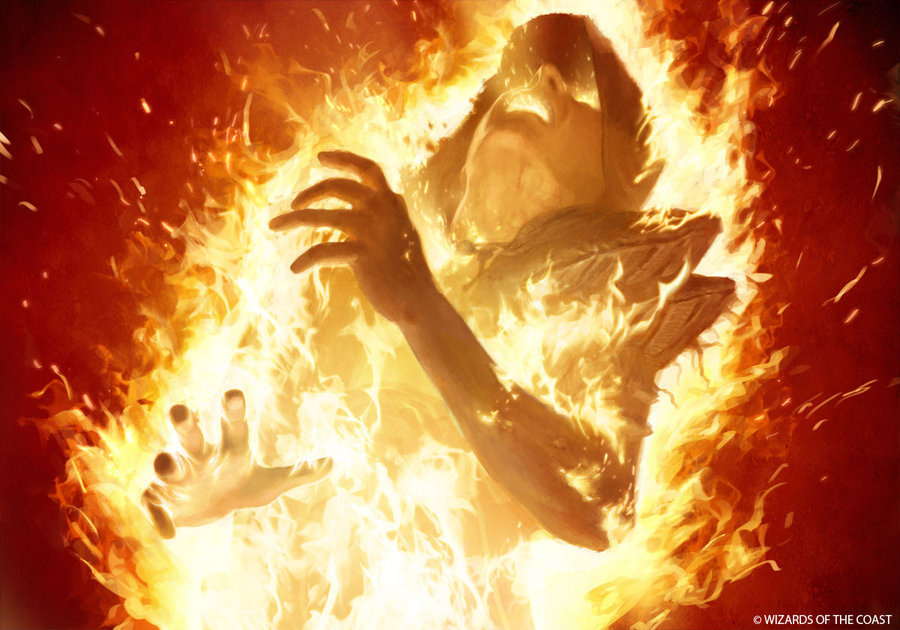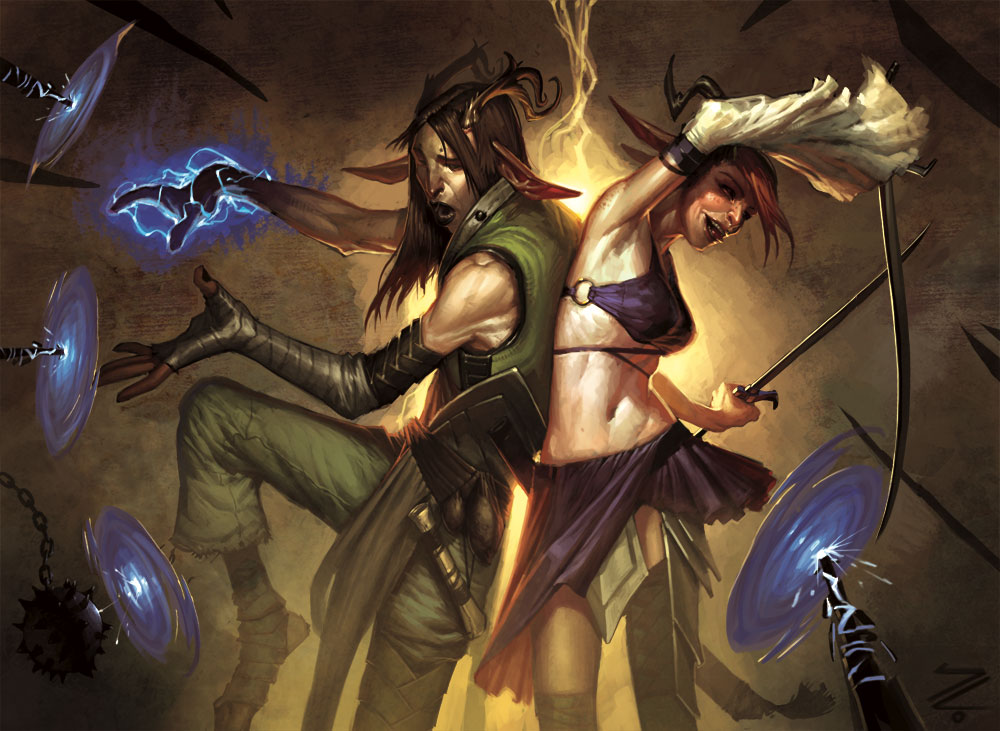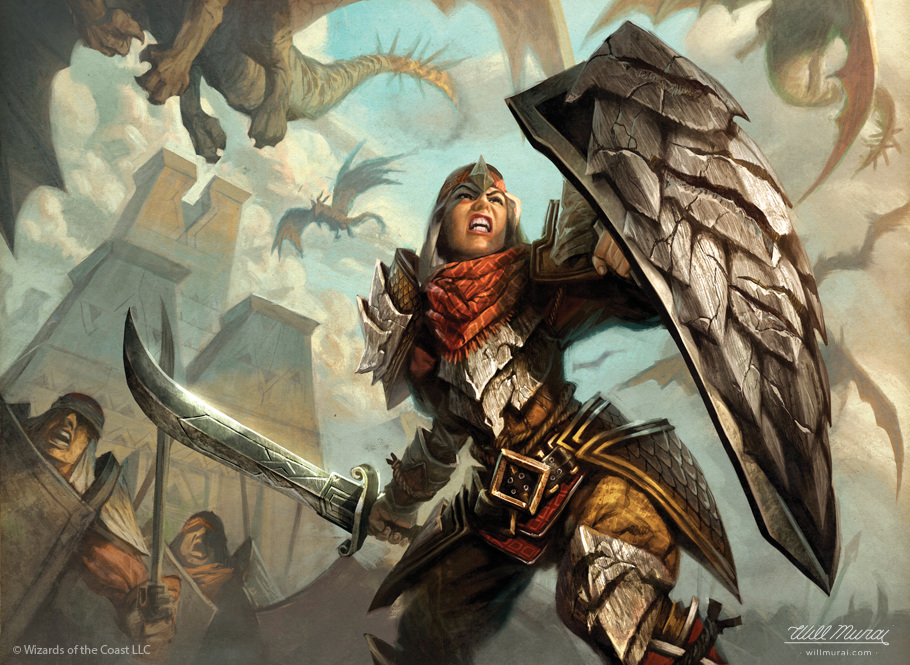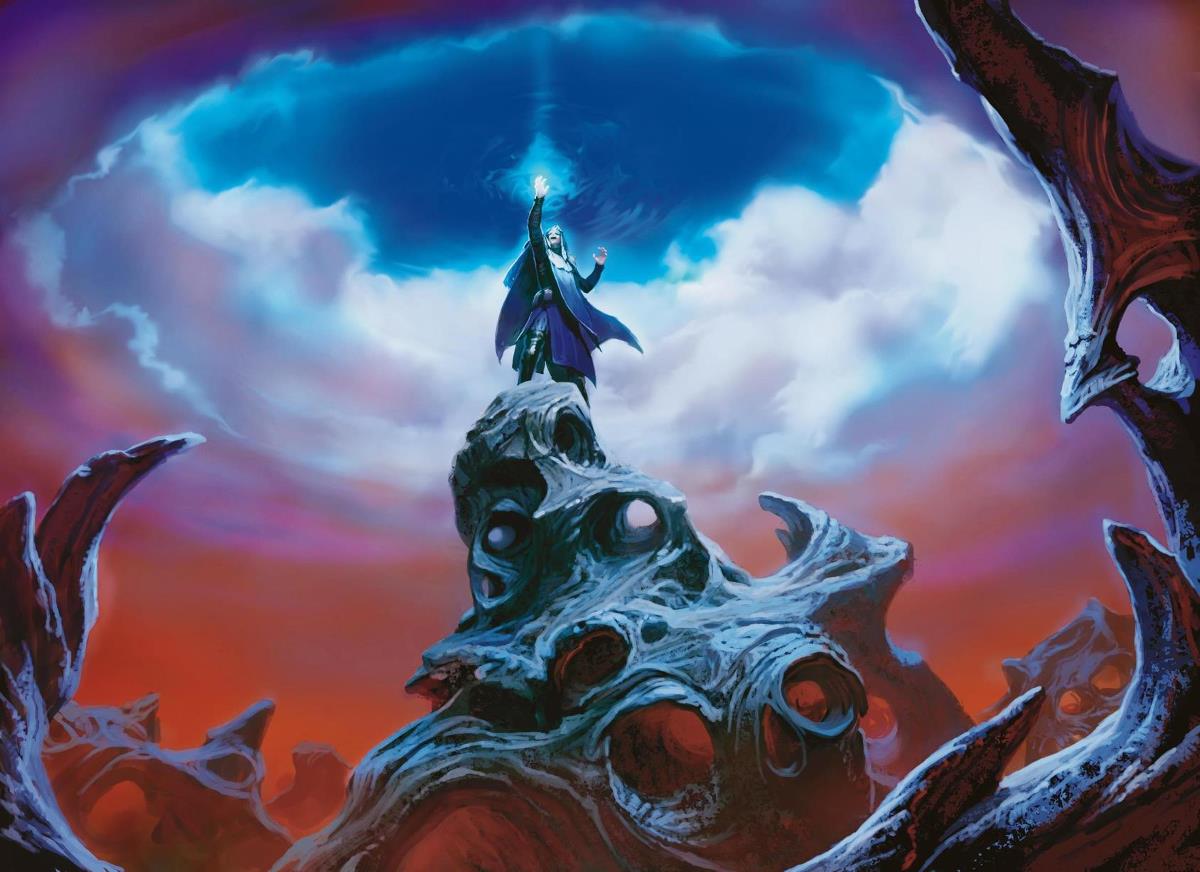
Critcast with Christine Foltzer, the Art Director of Tor books,
via One Fantastic Week's weekly web show.
So, let me back up a little bit... As you know, I consistently make art as often as I can. I continually post updates and things in equal fashion. I was toiling around on the One Fantastic Week facebook group, and lo-and-behold, up pops the option to join in a crit-cast (basically a live-critique of a select few individuals). I sat back in my chair at my day job, pondered for a few minutes and simply thought, "Ah, what the hell, I'll try and put my name in the hat... You never know what might come of it." I regularly watch the show, so it was my opportunity to try and perhaps get a small chance at getting some Art Director feedback. I wasn't assuming to actually get on the show what with the overflowing inbox of individuals posting for their portfolios to also get critiqued (I also browsed a few of them along the way and WOW some of those are amazing!). I began to watch the show live, like I typically do during work, and am listening along and things, when suddenly I hear my name. Normally I just shrug this off as Matt is a very common name... The typical struggle with my last name instantaneously grabs my attention. I quickly flip back to the video and nail-bite the entire time my website is being scoured. In the mean time, I tried to one-handedly write down as many notes as I can muster in critique. Anyone that's been in with me during class knows my common practice of just jotting constantly. What can I say, I'm fidgety. As my critique wrapped up, I began to reflect and think on what I could do to improve my site and overall approach to doing art. In that vein, I ended up coming up with a possible helpful article that I hope will be able to help other artists with something that we must all face. Taking Critique.
My typical, knee-jerk response when people are going on about critiques, is just simply that, learn to take it. Here's a few pointers that I feel like might help...

Annihilating Fire by Clint Clearly.
DON'T TAKE IT PERSONAL.
Remember firstly, that whoever happens to be critiquing you is merely attacking your work, not you personally. That being said, it's okay to have your comments and potential rebuttals, but remember that you should probably wait until the end, if there's time. Almost every time I was in school, during critiques, there was tendency to have to defend your work on the spot. Most of the time this ends up with some form of debate happening during the middle of the critique and ends up taking WAY longer than intended, which in my opinion rips into a lot of other folks critiques. In my opinion, it's important to separate yourself from your artwork (trust me, I know this to be a hard one, myself).

Natural Connection by Wes Burt.
BE CHOOSEY.
During your critique many issues might come up. Some that you agree with, some that you may not. In my experience it's important to look at what you feel like you might benefit from in the immediate, and then stew about ones that you might not gain much from immediately. I would suggest that overall the 'think before you act' method works wonders here. Make sure that you agree with what's being said, and then analyze what you can garner from it. Sometimes this may be a simple change, sometimes this can result in an entire piece needing to be reworked to get the concept through, fully. Either way, make sure that you take both sides of the coin into consideration here. My fiancee has a way of going with her gut, and that might be a good way to go about it here as well. Look at what is being said more as guidelines or technical fixes to start from.

Safehold Duo by Izzy.
I think that when most people go into a critique, they tend to forget that it is meant to help you. I'm merely generalizing here, but from my personal experience, some people take critiques as only a means to get picked on. They tend to think that they are being singled out for a specific problem and thus take it as a personal attack (see above).
That being said, remember that the people critiquing you are usually trying to help you get better at what you do. Take it as a personal achievement if you end up only getting critiqued for little things because that might mean that you are successful in the larger picture. Also remember that typically when a critique is given by someone in the industry that you are trying to push for, that might also help to put you on their radar. They might later on come back and look at your work to see if you've improved over what they mentioned in their evaluation of your work.

Also during my college career, anytime a criticism was given of the person being critiqued, they immediately jumped the gun to go on the defensive. In my opinion, it's very important that you don't go on any defensive until the very end. Save your explanations, your reasoning, your ideas, until the person critiquing you has had their chance to say their fill. If you feel like, afterward, there are a great deal of things that you would like to address to help the viewer see your point of view, then I would do so.
Think about it like this, if your work were on display a thousand miles away, and it was being judged, would you have the option to defend it immediately? This is how my mindset is typically during a critique. This is why I wait. I try to form opinions and rationale during the speaker's chance to analyze my work, and then, when they have said their peace, try to explain my point of view to help them gain a different or better understanding of my work.

THE CRITIQUE IS MEANT TO HELP.
I think that when most people go into a critique, they tend to forget that it is meant to help you. I'm merely generalizing here, but from my personal experience, some people take critiques as only a means to get picked on. They tend to think that they are being singled out for a specific problem and thus take it as a personal attack (see above).
That being said, remember that the people critiquing you are usually trying to help you get better at what you do. Take it as a personal achievement if you end up only getting critiqued for little things because that might mean that you are successful in the larger picture. Also remember that typically when a critique is given by someone in the industry that you are trying to push for, that might also help to put you on their radar. They might later on come back and look at your work to see if you've improved over what they mentioned in their evaluation of your work.

SILENCE IS KEY.
Also during my college career, anytime a criticism was given of the person being critiqued, they immediately jumped the gun to go on the defensive. In my opinion, it's very important that you don't go on any defensive until the very end. Save your explanations, your reasoning, your ideas, until the person critiquing you has had their chance to say their fill. If you feel like, afterward, there are a great deal of things that you would like to address to help the viewer see your point of view, then I would do so.
Think about it like this, if your work were on display a thousand miles away, and it was being judged, would you have the option to defend it immediately? This is how my mindset is typically during a critique. This is why I wait. I try to form opinions and rationale during the speaker's chance to analyze my work, and then, when they have said their peace, try to explain my point of view to help them gain a different or better understanding of my work.

BE THICK-SKINNED.
I feel like this is a more obvious thing for all creatives to have, but we should all be extremely thick-skinned. I personally don't get hurt even if people go so far as to simply say, "WOW, THAT SUCKS!" Sure, it's not to say that I don't have to lick my wounds here and there, but I feel like it only makes me harder to scathe the next time around. I've heard of artists threatening to quit over a bad review of their work, when they should take what was said and try to see how to apply it to the next piece.
Jake Parker has a very great piece of advice that goes hand-in-hand with this. He says, "Finished, not perfect." This is perfect advice for how to develop your hide. You have to realize that we will always be picked apart, from the most amateur all the way to the highest pro. Criticism is just part of our career and growth, so embrace it now, as you'll be dealing with it your entire career.

Millstone by Yeong-Hao Han.
LET IT STEW.
My last piece of advice is to take what was said, analyze it, break it apart, find out the roots of exactly what was said. Sometimes merely keeping it in the back of your head is enough to push everything you have into the next piece. Marinate over all of it and try to make that next breakthrough!

Pact of Negation by Jason Chan.
All of this is to say that, this is exactly how you should feel AFTER a critique!
Until next time, may everyone's art get better!
Images used in this post, (c) Wizards of the Coast.

.png)


No comments:
Post a Comment